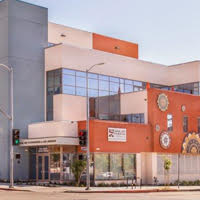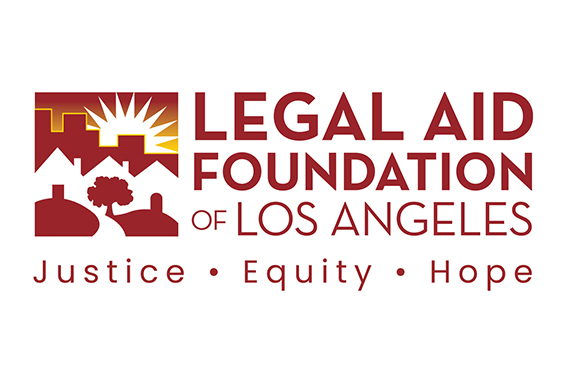Racial justice is at the core of our fight for equal justice, as poverty is inextricably linked with racism. Black History Month is not only a time of celebration but also reflection: Racism, both personal and structural, has impacted Black communities for centuries. Its legacy is seen in the disproportionate numbers of Black Americans who are part of the criminal justice system; who experience homelessness; who do not have access to quality health care; and in a myriad of other ways.
LAFLA is committed to fighting for justice for Black clients and communities and ensuring access to legal services and resources. By addressing the systemic forces that disproportionately impact Black communities, we build the foundations of a more just, equitable society. We do this through our services, advocacy, and community engagement, driven by the following tenets:
Housing justice is racial justice. Discriminatory policies and practices have impeded Black homeownership for generations. Lack of affordable housing is an additional hurdle facing Black communities — a situation compounded by the pandemic, during which many people lost their jobs and faced financial difficulties. Homelessness also disproportionately impacts Black community members: In California, Black residents make up 6% of the state population but account for nearly 38% of the state’s unhoused population.
We ensure that Black renters can live safely and comfortably in their homes to combat the legacy of redlining and discrimination in housing. We also fight for the rights of unhoused community members who have — for many of the reasons outlined above —lost their homes yet find themselves constantly under attack (from the government, law enforcement, businesses, other community members) simply for their existence.
Economic security is racial justice. Today’s racial wealth gap is the legacy of centuries of stolen labor through slavery, exploitation, and the exclusion of Black Americans from wealth-building opportunities such as homeownership. Without the cushion of generational wealth and the privileges it affords, Black Americans face disparities in a variety of ways, including education and employment. In 2021, the median annual wage for Black workers was approximately 30% lower than that of white workers — evidence systemic racism continues to preclude Black Americans from the full range of benefits and opportunities enjoyed by white Americans.
We ensure that Black community members can access safety-net benefits that are necessary to combat the wealth gap. By helping clients and community members achieve and maintain economic security, we keep poor individuals and families housed, fed, and taken care of when they are sick. Economic stability helps prevent individuals and families from falling further into debt and provides a foundation for financial growth.
Re-entry legal services are critical to combating the legacy of mass incarceration. The history of racist ideologies and practices in law enforcement and the criminal justice system is well-documented. Police brutality and racial profiling are rooted in white supremacy; the disproportionate number of Black people in the criminal justice system is the (intentional) result, with Black Americans incarcerated in state prisons at five times the rate of white Americans. A criminal record impacts individuals’ ability to secure employment and housing, vote, and participate fully and meaningfully in their communities.
Our re-entry work helps remove barriers to employment and housing due to individuals’ criminal records. Criminal record expungements help individuals achieve and maintain stability, which is key to reducing rates of recidivism and improving clients’ lives overall.
Veterans’ justice is racial justice. The military is another institution in which racism is pervasive. A recent poll found that more than one-third of all active-duty troops and more than half of non-white servicemembers have personally witnessed white nationalism or racism in the military. The experience of racism compounds with the traumas of military service, exacerbating mental health conditions for Black veterans. Racial discrimination, like in law enforcement, results in Black military members disproportionately being investigated and punished — and therefore more likely to have a less than honorable discharge from the military. “Bad paper” hurts veterans’ ability to get jobs and VA benefits, which can drive veterans into poverty, from which many were trying to escape by joining the military in the first place. Black veterans are overrepresented in the unhoused population because of this myriad of problems.
Our Veterans Justice Center works to undo the damage caused by racism and discrimination in the military, so that Black veterans can fully access the benefits to which they are entitled. Discharge upgrades help individuals access VA healthcare, supportive housing, financial resources, and other supportive services. Veteran’s benefits appeals provide a financial safety net for those who served our country and have suffered for it.
This list of tenets that underpins our work is not exhaustive. Justice for Black clients and communities drives all that we do. We will continue to strive to fight the impacts of structural racism through positive change, on an individual level and for whole communities. LAFLA’s Race Equity Initiative brings together advocates across different areas of law to identify issues, brainstorm solutions, and build a more equitable future.
Join us in the fight for equality. Educate yourself. Support Black-owned businesses. Speak out against individual injustices. Move together towards a better future.










